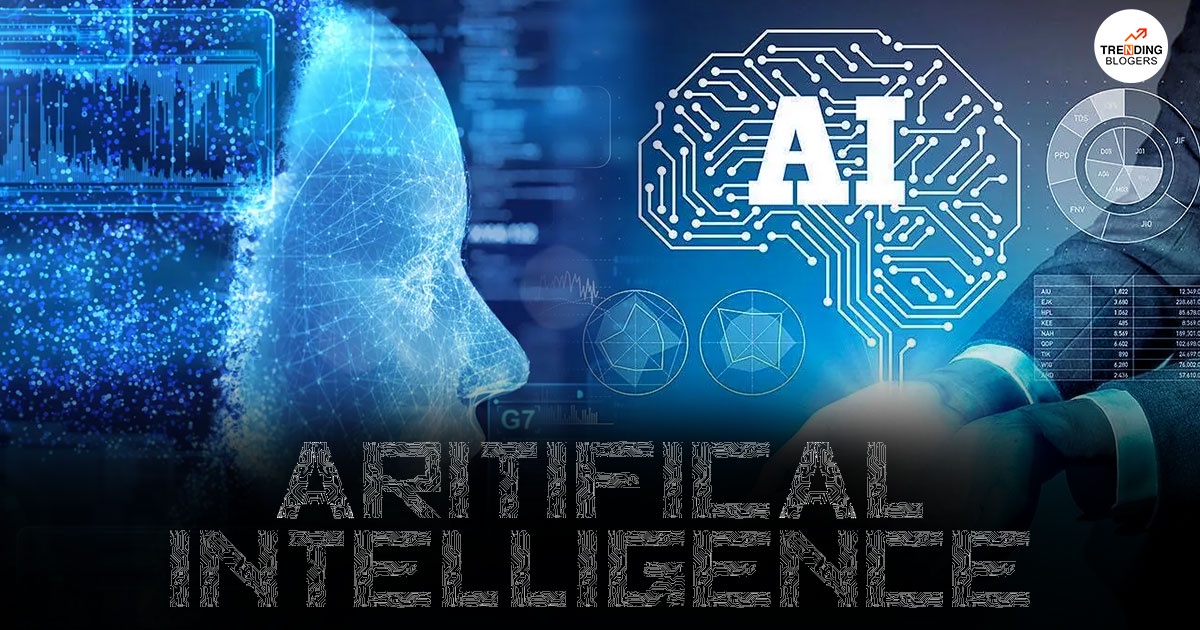AI is a branch of science that deals with building machines and computers that can act, reason, and learn in a particular way, which requires human intelligence. Artificial Intelligence is a vast field that includes various disciplines like neurosciences, linguistics, hardware and software engineering, computer science, data statistics and analytics, and psychology and philosophy.
The term AI originated in 1956. Still, somehow, it has gained more popularity in recent days, and all the credit goes to the advanced algorithms, development in computing storage and power, and also the increased volumes of data.
How Does Artificial Intelligence Work?
Artificial Intelligence systems combine large data sets with intelligent, repetitive processing algorithms to learn from features and patterns in the data they examine. Artificial Intelligence runs a round of processing data; it measures and tests its own performance and generates extra expertise.
AI does not need a break; it can do hundreds, thousands, and millions of tasks extra quickly, learning a great deal quickly. Also, it is competent at whatever it is being trained to achieve. Understanding how AI works is understanding that it is not a single computer application or program but a whole discipline and science.
The goal of AI is to develop a computer system capable of adapting human behaviors so that it can use human-like thinking procedures to work out complicated and tricky problems. AI systems use a whole series of processes and techniques and also a vast arrangement of various technologies.
Types of Artificial Intelligence
We are mentioning seven kinds of AI:
-
Artificial General Intelligence
AI is designed to think, perform, and learn at the same level as humans.
-
Reactive Machines
AI can’t be able to store information for the future or build memory, but it can respond to external stimuli in real-time.
-
Limited Memory
It can store knowledge for training and learning for future tasks.
-
Mind Theory
AI can respond to and sense human feelings and also perform the task of limited memory machines.
-
Artificial Narrow Intelligence
AI is designed to accomplish particular actions that can’t be learned independently.
-
Self-awareness
It knows human-level and self-intelligence, which can recognize other feelings and emotions.
-
Artificial Superintelligence
AI can excel in the capabilities and knowledge of humans.
Importance of Artificial Intelligence
Artificial Intelligence is vital for its ability to change how we work, play, and live. It has been efficiently used in businesses to motorize tasks done by human beings, including lead generation, fraud detection, quality control, and customer service work. In many areas, AI can accomplish the job better than humans. Regarding detailed-oriented and repetitive tasks, AI tools can achieve them quickly with few errors.
-
Intelligence
Artificial Intelligence adds intelligence to everything. A great example is Siri in Apple phones. Automation, bots, and smart machines can be mixed with ample data to improve various technologies.
-
Can Improve Through Developing Learning Principles
Artificial Intelligence can teach itself what product should be recommended next for customers online.
-
Achieves Accuracy
Artificial Intelligence can achieve accuracy through deep networks. Your interaction with Google and Alexa can be a great example of deep learning. These products get more accurate by using them more.
-
Gets The Most Out Of The Data
The answers are in the data, and you must apply AI. The role of the data is essential, and it can bring more advantages for you.
-
Analyzes Deeper Data
A lot of data is needed to train deep learning models because Artificial intelligence learns directly from the data.
Pros and Cons of Artificial Intelligence
Deep learning AI technologies are evolving rapidly because they can quickly process vast amounts of data. Also, they can make predictions more correctly than humans. But every coin has another side. Similarly, AI also has some disadvantages, which we will tell you.
Pros:
- Gives reliable results
- Better at detailed-oriented tasks
- Lessened time for data-heavy jobs
- Improves customer satisfaction
- Virtual agents of AI are always present
- Increases productivity and saves labor
Cons:
- Require in-depth knowledge of technical skills
- Expensive
- Restricted supply of skilled workers to generate AI tools
- Increasing unemployment rates and eliminating human jobs
- Lack of ability to speculate from one task to another
Conclusion
Artificial Intelligence is gaining popularity at a fast pace. It makes it possible for machines to learn from past experiences and do human-like tasks easily. Many AI examples we acknowledge today are self-driving cars and chess-playing computers. These rely sincerely on natural language processing and deep learning. AI has a bright future ahead because everything is going digital nowadays. Learning AI will definitely going to help you in the future. Check How to Learn Artificial Intelligence in 2024. for a quick and clear guide.


No comments yet